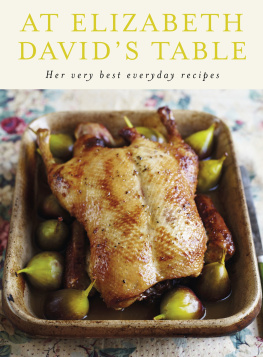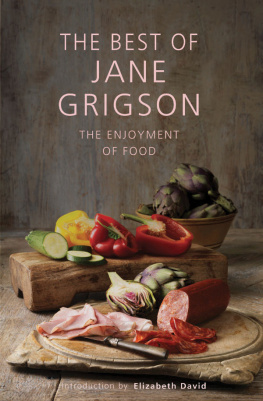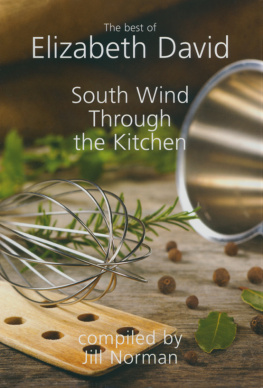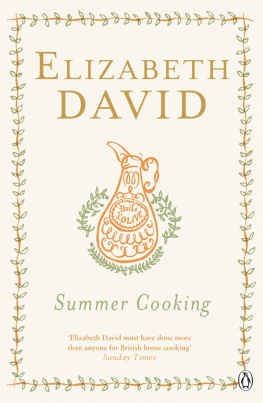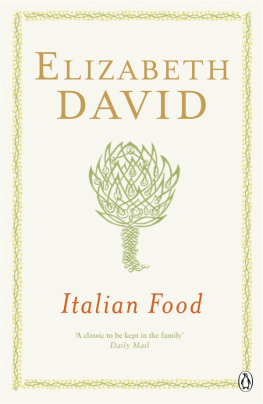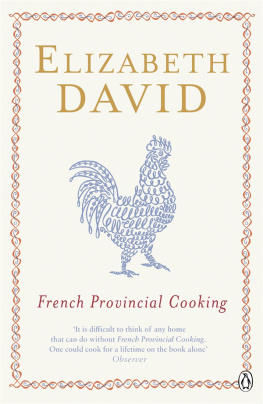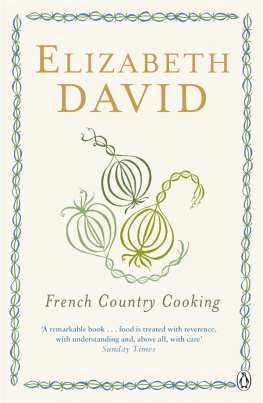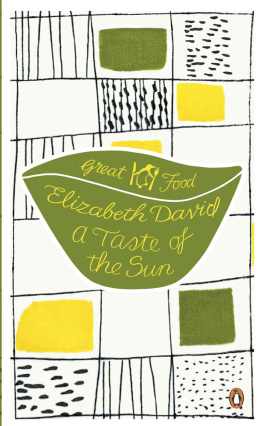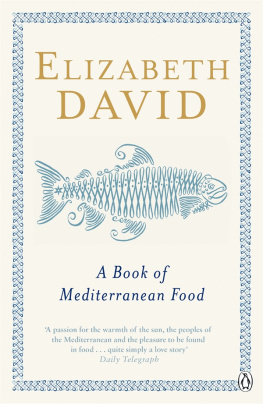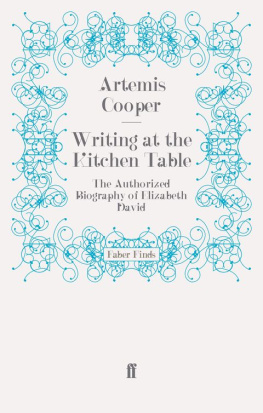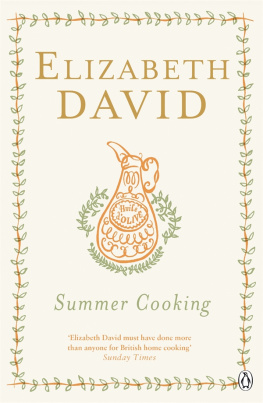FAST and FRESH
It isnt only the expense, the monotony and the false tastes of the food inside most tins and jars and packages which turn me every day more against them. The amount of space they take up, the clutter they make and the performance of opening the things also seem to me quite unnecessarily exasperating. However, even cookery journalists who spend most of their lives with a saucepan in one hand and a pen in the other cant dispense entirely with the kind of stores from which a meal can every now and again be improvised. What I personally require of such things is that there shall be no question whatever of their letting me down or giving me any unwelcome surprise. Out with any product which plays tricks or deteriorates easily. And out also with all the things of which one might say theyll do for an emergency. If something isnt good enough for every day, then it isnt good enough to offer friends, even if they have turned up demanding a meal without notice.
Twenty years ago, during the war years, which I spent in the Eastern Mediterranean, I became accustomed to planning meals from a fairly restricted range of provisions. Now I find myself returning more and more to the same sort of rather ancient and basic foods. They suit my taste and they are the kind of stores which will always produce a coherent and more or less complete meal, which is just what haphazardly bought tins and packages wont do. What happens when you have to open four tins, two jars and three packets in order to make one hasty cook-up is that you get a thoroughly unsatisfactory meal; and the contents of half-used tins and jars have got to be dealt with next day or left to moulder in the fridge. The only stores I had to bother about when I lived for a time in a small seashore village on an gean island were bread, olive oil, olives, salt fish, hard white cheese, dried figs, tomato paste, rice, dried beans, sugar, coffee and wine.
With fresh fish mostly small fry or squid, but occasionally a treat such as red mullet or a langouste to be obtained from one of the fisher boys, with vegetables and fruit from the garden of the tavern-owner, eggs at about twopence a dozen, and meat usually kid, lamb or pork available only for feast days, the diet was certainly limited, but at least presented none of the meal-planning problems which, as I have learned from readers letters, daily plague the better-off English housewife.
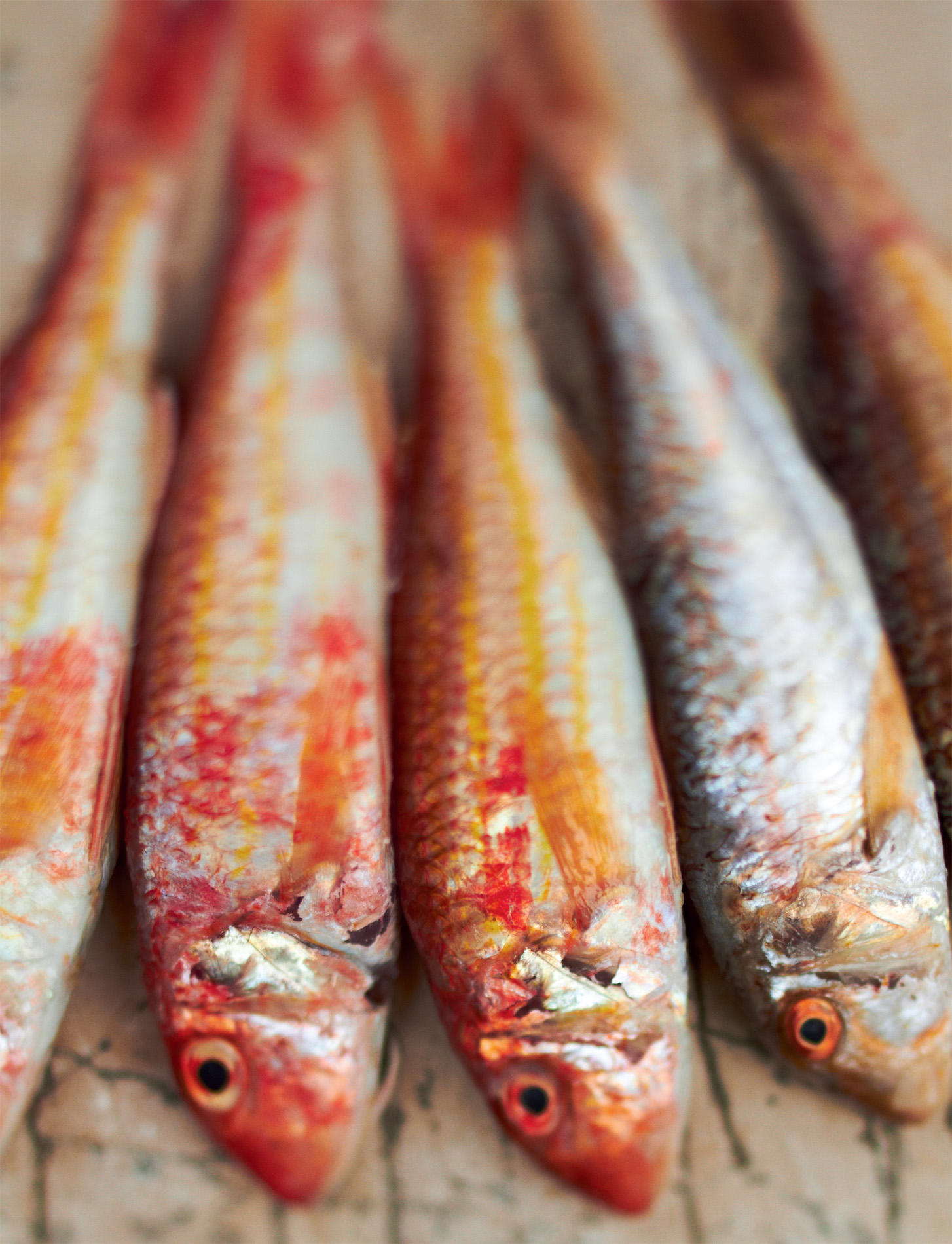
Subsequently, in war-time Egypt, I found, in spite of the comparative plenty and variety and the fact that in Greece I had often grumbled about the food, that the basic commodities of the Eastern Mediterranean shores were the ones which had begun to seem essential. Alexandrians, not surprisingly, knew how to prepare these commodities in a more civilized way than did the Greek islanders. The old-established merchant families of the city Greek, Syrian, Jewish, English appeared to have evolved a most delicious and unique blend of Levantine and European cookery and were at the same time most marvellously hospitable. I have seldom seen such wonderfully glamorous-looking, and tasting, food as the Levantine cooks of Alexandria could produce for a party. And yet when you got down to analysing it, you would find that much the same ingredients had been used in dish after dish only they were so differently treated, so skilfully blended and seasoned and spiced that each one had its own perfectly individual character and flavour.
In Cairo the dividing line between European and Eastern food was much sharper. It was uphill work trying to make English-trained Sudanese cooks produce interesting food. Most of them held a firm belief that the proper meal to set before English people consisted of roast or fried chicken, boiled vegetables and a pudding known to one and all as grme garamel.
My own cook, Suleiman, was a Sudanese who had previously worked only for Italian and Jewish families. He was erratic and forgetful, but singularly sweet-natured, devoted to his cooking pots and above all knew absolutely nothing of good, clean, English schoolroom food.
I used occasionally to try to teach him some French or English dish for which I had a nostalgic craving, but time for cooking was very limited, my kitchen facilities even more so, and on the whole I left him to his own devices.
So it came about that for three or four more years I lived mainly on rather rough but highly flavoured, colourful shining vegetable dishes, lentil or fresh tomato soups, delicious spiced pilaffs, lamb kebabs grilled over charcoal, salads with cool mint-flavoured yoghurt dressings, the Egyptian fellahin dish of black beans with olive oil and lemon and hard-boiled eggs these things were not only attractive but also cheap and this was important because although Egypt was a land of fantastic plenty compared with war-time Europe, a lot of the better-class food was far beyond the means of young persons living on British Civil Service pay without foreign allowances, and tinned stores were out of the question because there was no room for them in the cave which my landlord was pleased to describe as a furnished flat.
What I found out when I returned to England to another five or six years of the awful dreary foods of rationing was that while my own standard of living in Egypt had perhaps not been very high, my food had always had some sort of life, colour, guts, stimulus; there had always been bite, flavour and inviting smells. Those elements were totally absent from English meals.
As imports came slowly back, I found once more, and still find, that it is the basic foods of the Mediterranean world which produce them in the highest degree. And it is curious how much more true variety can be extracted from a few of these basic commodities than from a whole supermarketful of products, none of which really taste of anything in particular.
So long as I have a supply of elementary fresh things like eggs, onions, parsley, lemons, oranges and bread and tomatoes and I keep tinned tomatoes too I find that my store cupboard will always provide the main part of an improvised meal. If this has to be made quickly it may be just a salad of anchovy fillets and black olives, hard-boiled eggs and olive oil, with bread and a bottle of wine. If it is a question of not being able to leave the house to go shopping, or of being too otherwise occupied to stand over the cooking pots, then there are white beans or brown lentils for slow cooking, and usually a piece of cured sausage or bacon to add to them, with onions and oil and possibly tomato. Apricots or other dried fruit can be baked in the oven at the same time, or I may have oranges for a fruit salad, and if it comes to the worst therell at least be bread and butter and honey and jam. Or if I am given, say, forty-five minutes to get an unplanned meal ready well, I have Italian and Patna rice and Parmesan, spices, herbs, currants, almonds, walnuts, to make a risotto or a pilaff. And perhaps tuna, with eggs to make mayonnaise, for an easy first dish. The countless number of permutations to be devised is part of the entertainment.
from The Spectator, 9 December 1960
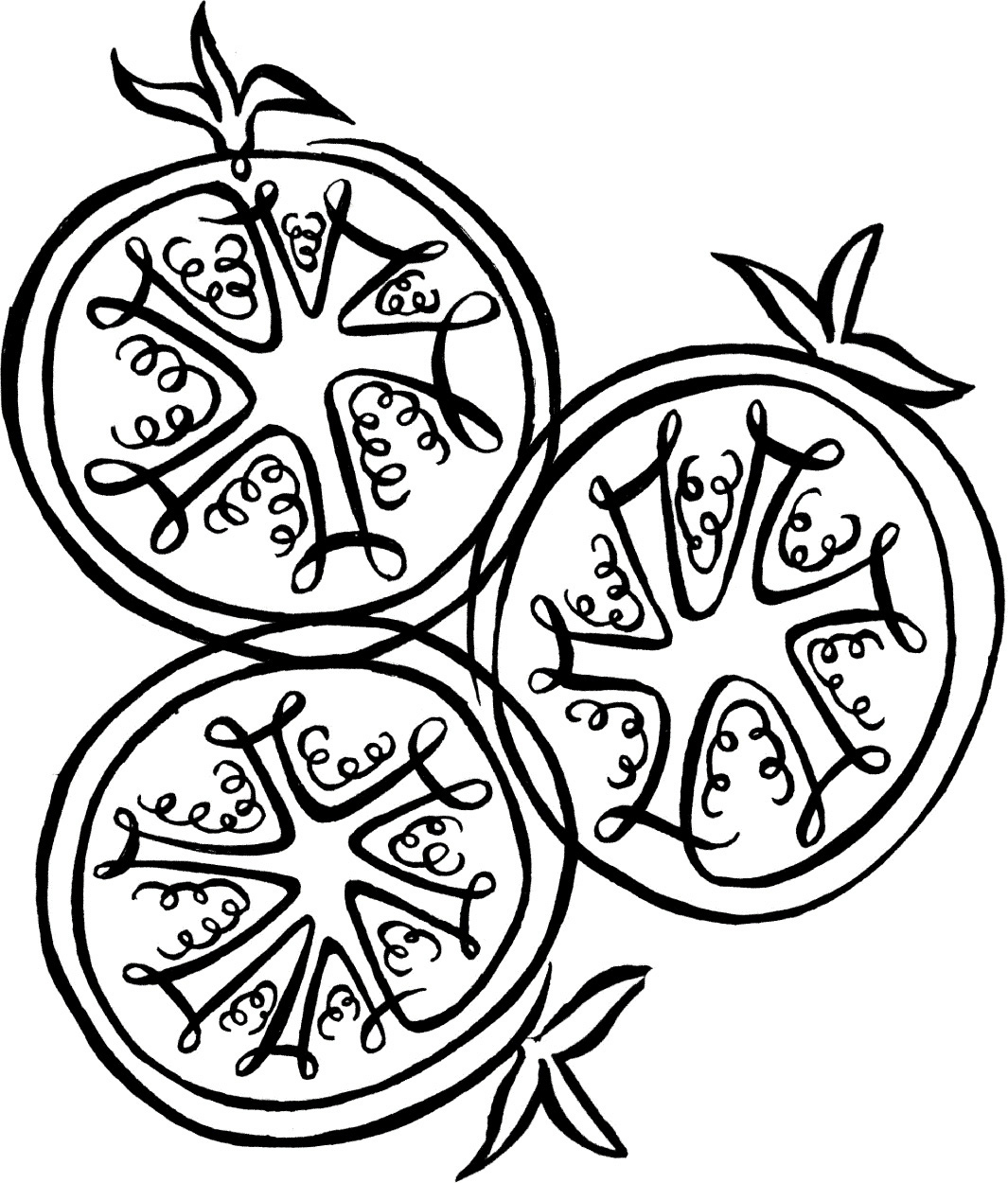
STARTERS
and
LIGHT DISHES
It is very easy to make an attractive first course from vegetables, eggs, prawns, rice and simple sauces; it is only a question of imagination, and the most elementary knowledge of cooking. The simplest starters are the best, looking clean and fresh. One of the nicest of all is the Genoese one of raw broad beans, rough salame sausage and salty sheeps milk Sardo cheese; each of these things is served on a separate dish, and each person peels his own beans and cuts his own cheese; if the same ingredients were all mixed up together in a bowl the point would be quite lost. In the same way, a salad of tuna piled up on haricot or French beans dressed with oil has two quite contrasting but compatible flavours, whereas if the tuna is mashed up among the beans, the flavours and textures of both are sacrificed, and the appearance of the dish messy as well.

